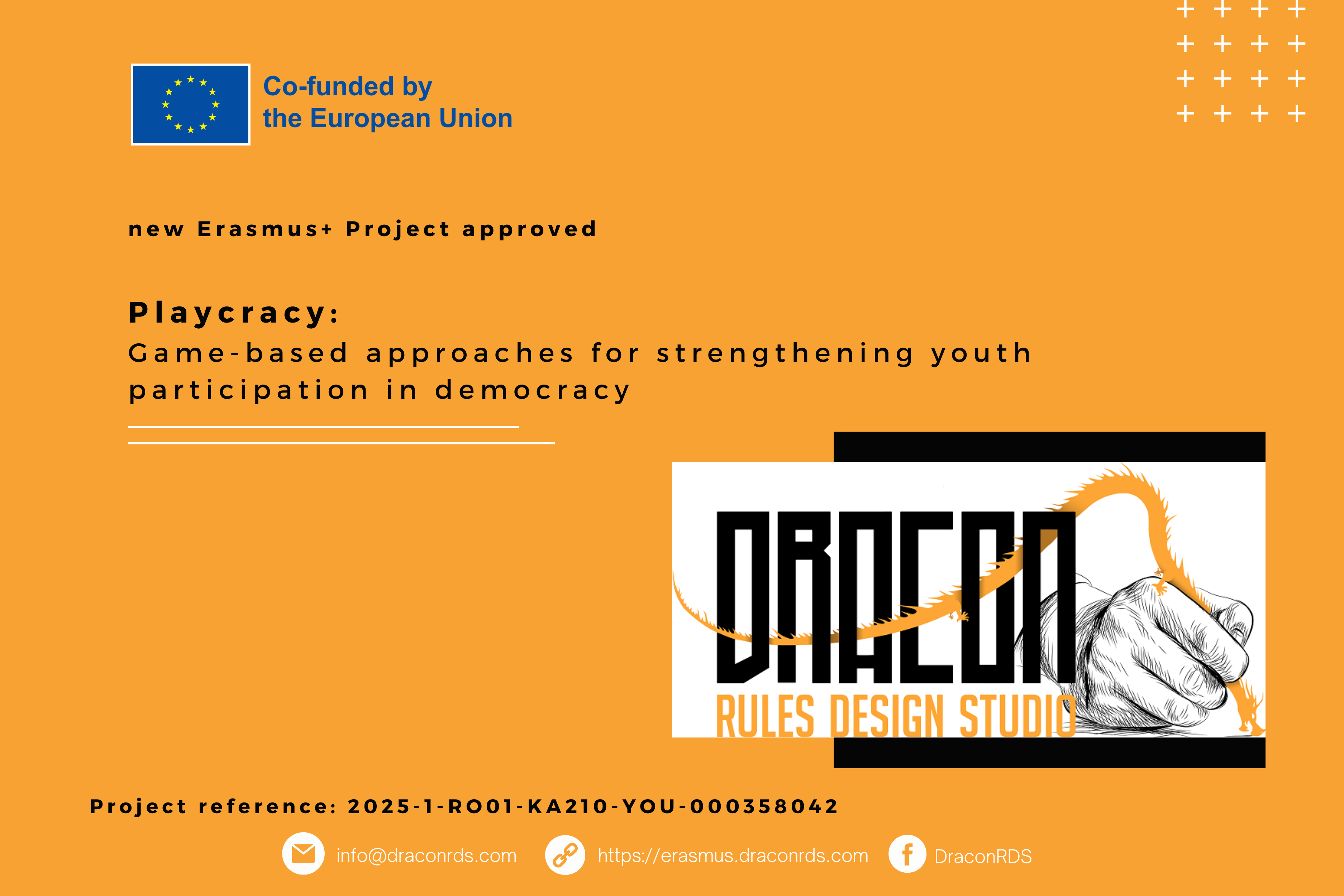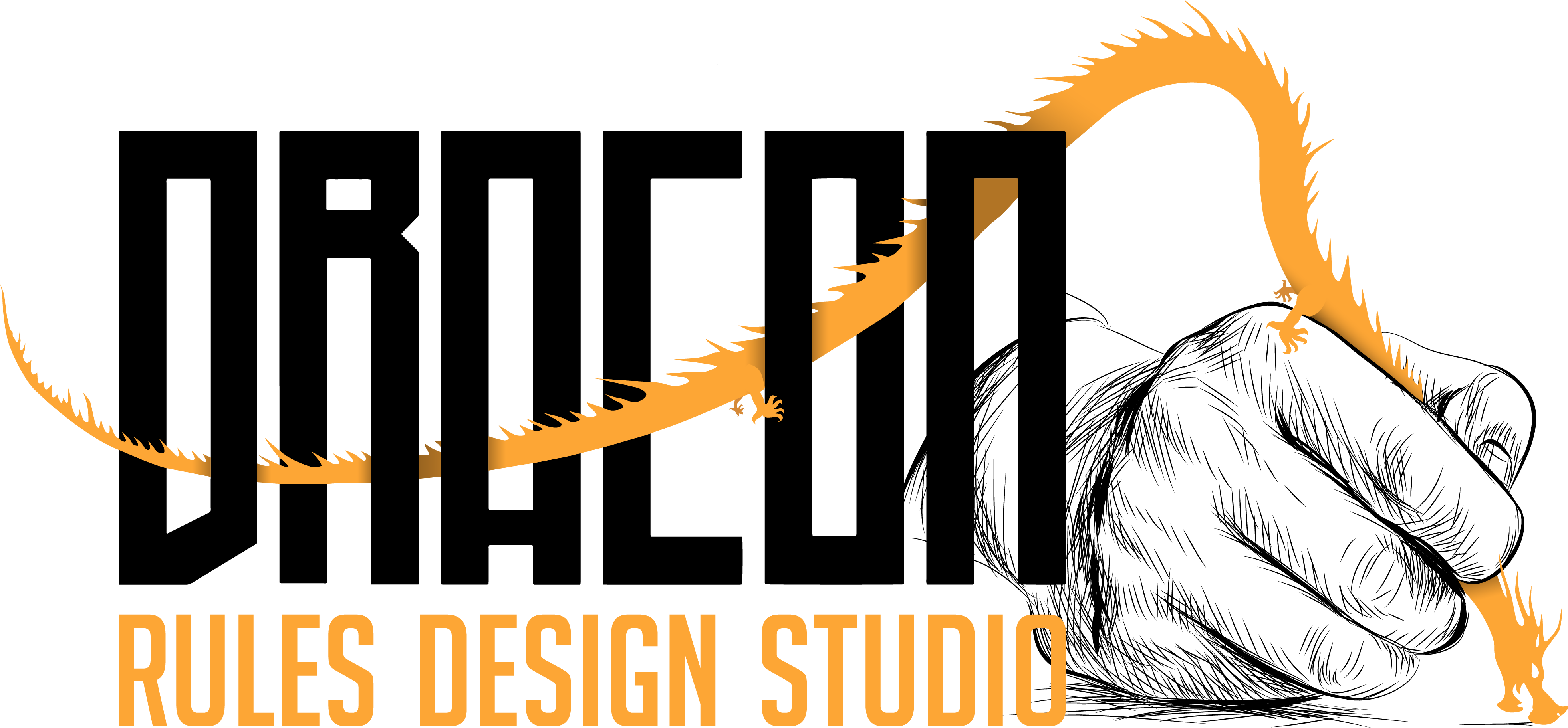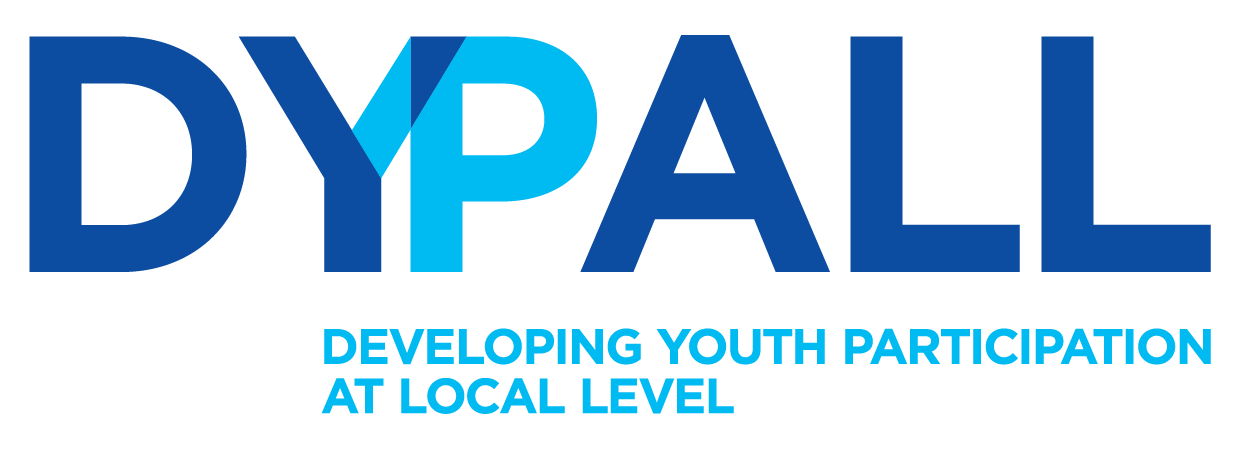
Playcracy:
Game-based approaches for strengthening youth participation in democracy
Program: Erasmus+
Key action: Partnerships for cooperation and exchanges of practices
Action Type: Small-scale partnerships in youth
Project Reference: 2025-1-RO01-KA210-YOU-000358042
Start Date - End Date: 01/09/2025 - 31/08/2026
Duration: 12 months
Our role: Partner
Topics
- Awareness about the European Union
- Democracy and inclusive democratic participation
- European identity and values
The Co-Create project, co-funded by the Erasmus+ Programme, PLAYCRACY is a 12-month Erasmus+ KA210-YOU project that uses board games and gamification to make civic education engaging and accessible. We train youth workers, co-create a practical guide, and run local workshops so young people (18–29) can practice democratic participation through play.
Background of the project
Youth participation in democracy is declining across Europe, with voter turnout among 18-29-year-olds reaching only 36% in the 2024 EU elections - and even lower in Romania (19%), Greece (26%), and Portugal (14%). PLAYCRACY responds to this challenge by using board games and gamification to make civic education engaging and accessible, helping youth workers and young people explore democracy through play, dialogue, and collaboration.
Objectives
1️⃣ To equip 12 youth workers
(4 from each partner country) with practical skills - including critical thinking, facilitation, creativity, and communication - to integrate game-based learning and gamification into youth work and civic education.
2️⃣ To enhance the democratic participation skills
of 90 young people (30 per country) through interactive workshops using board games that foster civic engagement, decision-making, and collaboration.
3️⃣ To develop, test, and disseminate
a multilingual toolkit (EN, RO, PT, EL) containing adaptable methodologies, facilitation strategies, and case studies to support youth workers in using games for democracy education.
4️⃣ To strengthen European collaboration between youth organizations from Romania, Greece, and Portugal in promoting democratic participation and innovative non-formal education methods.



